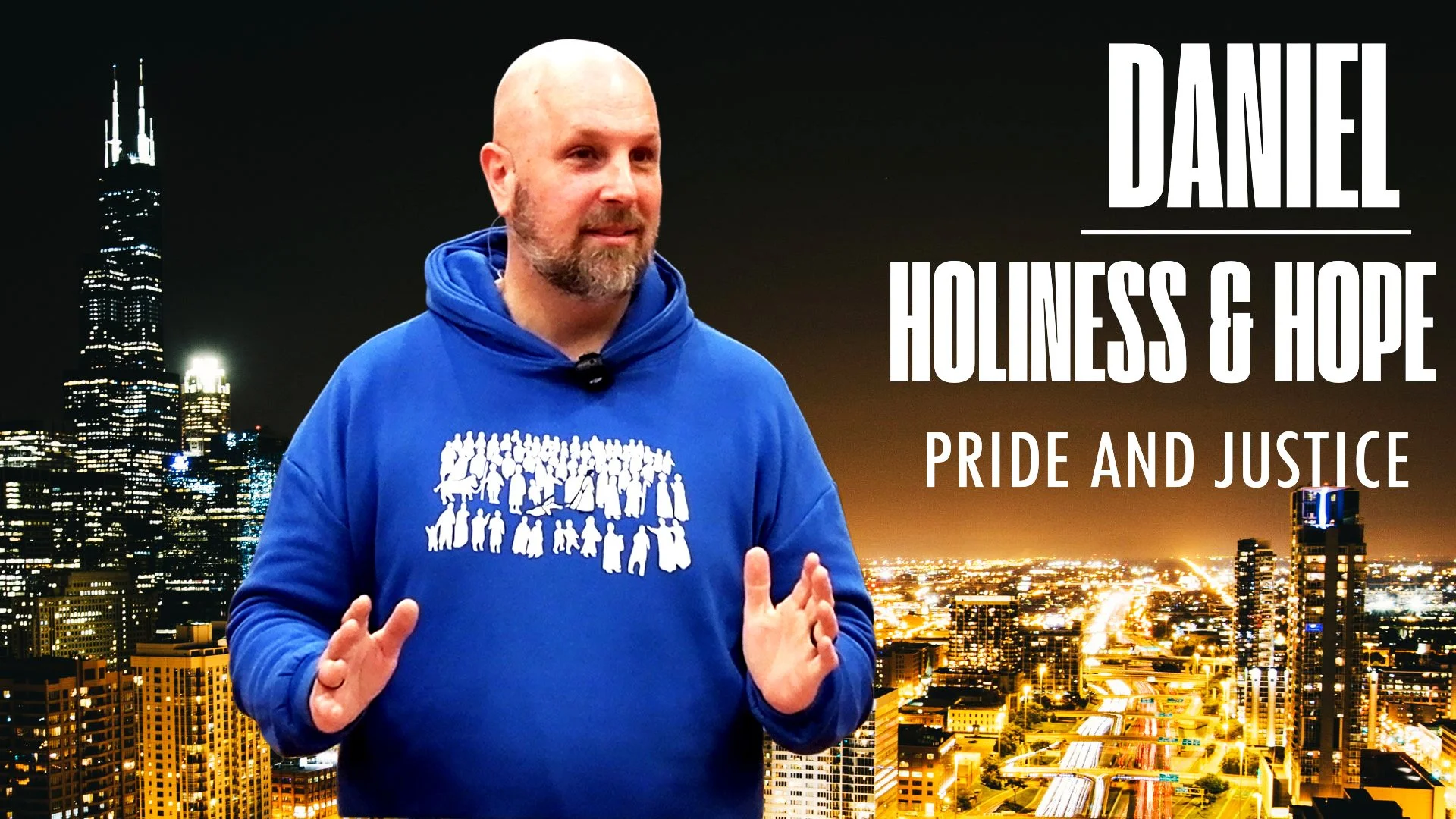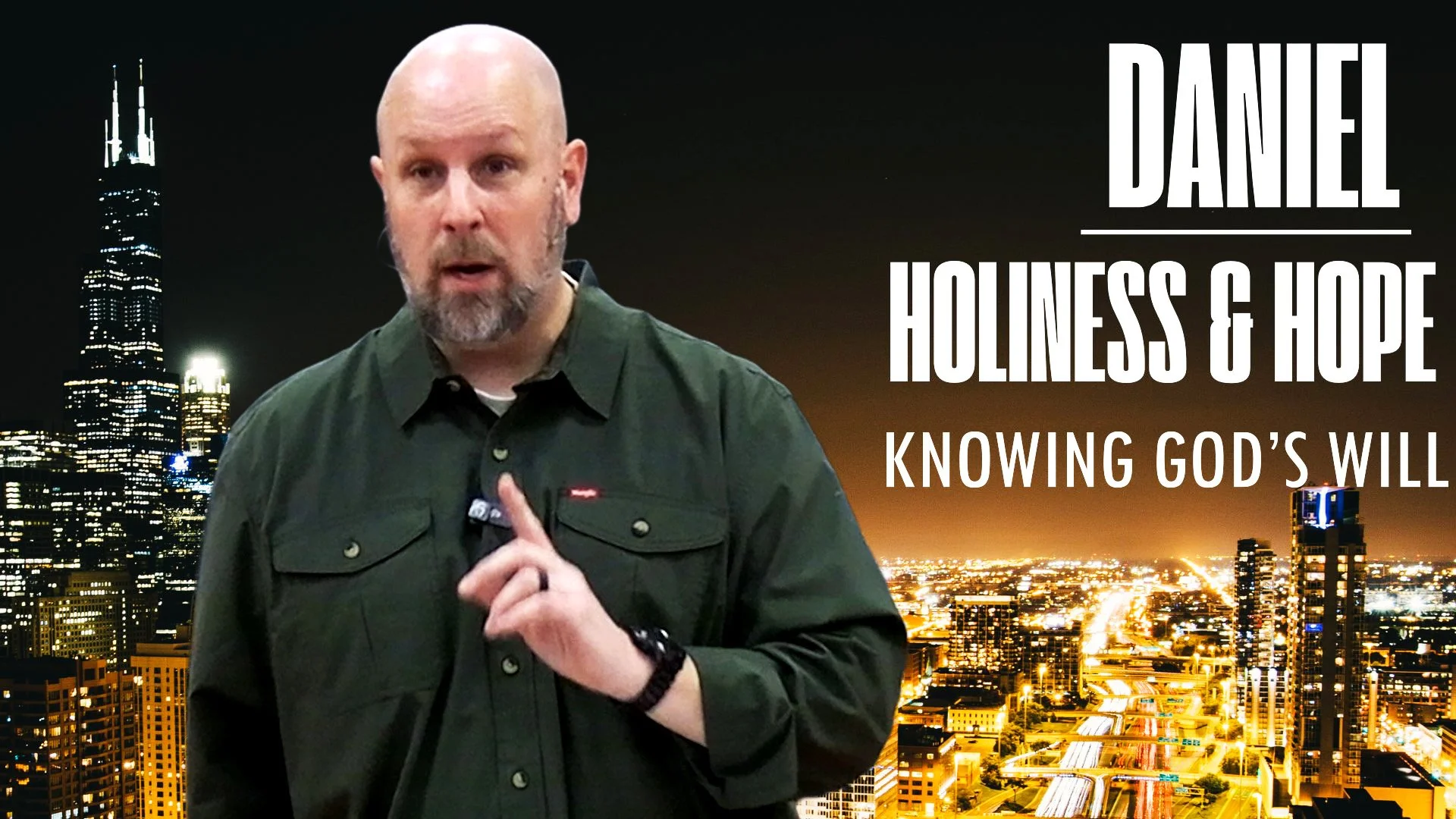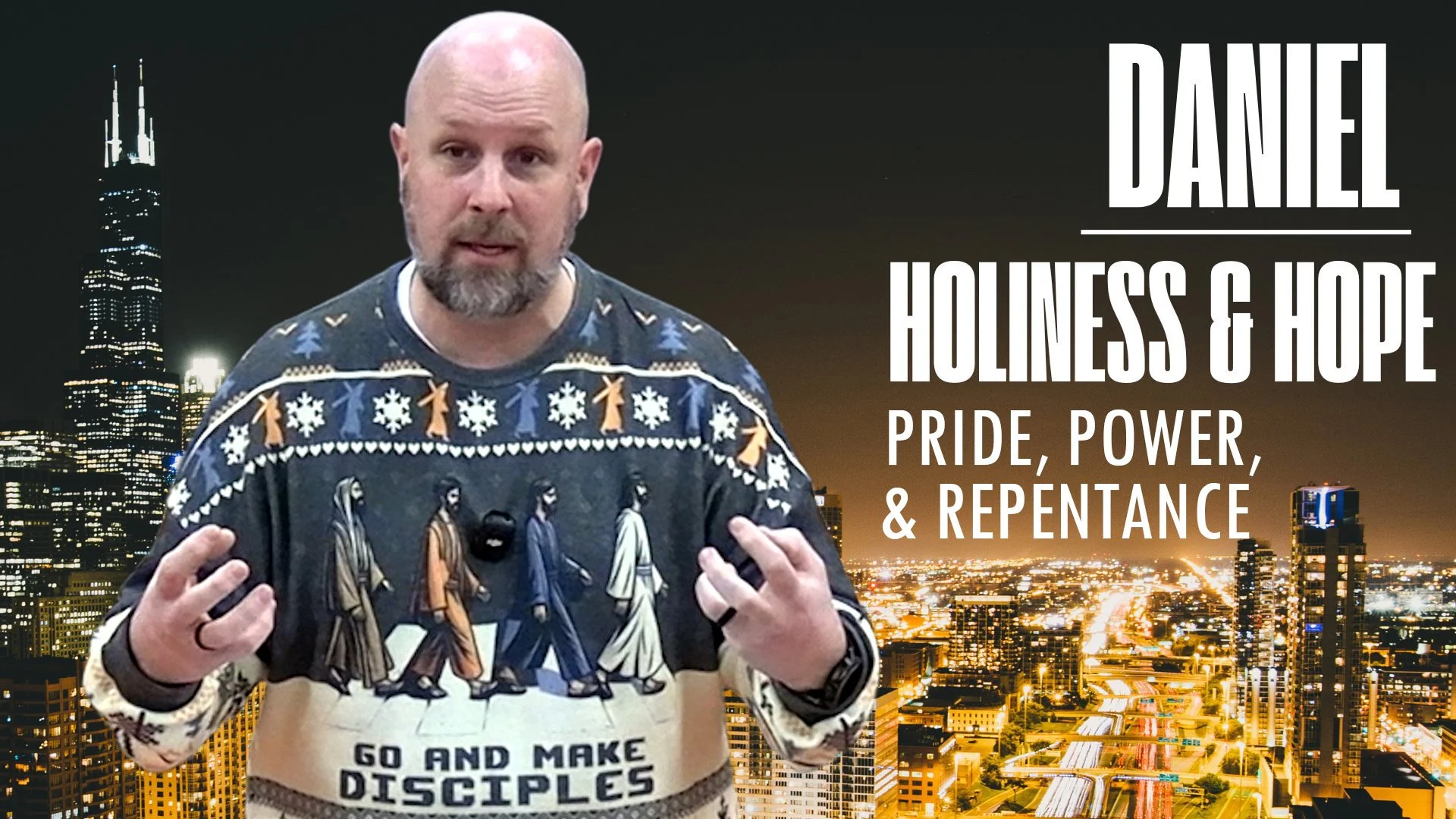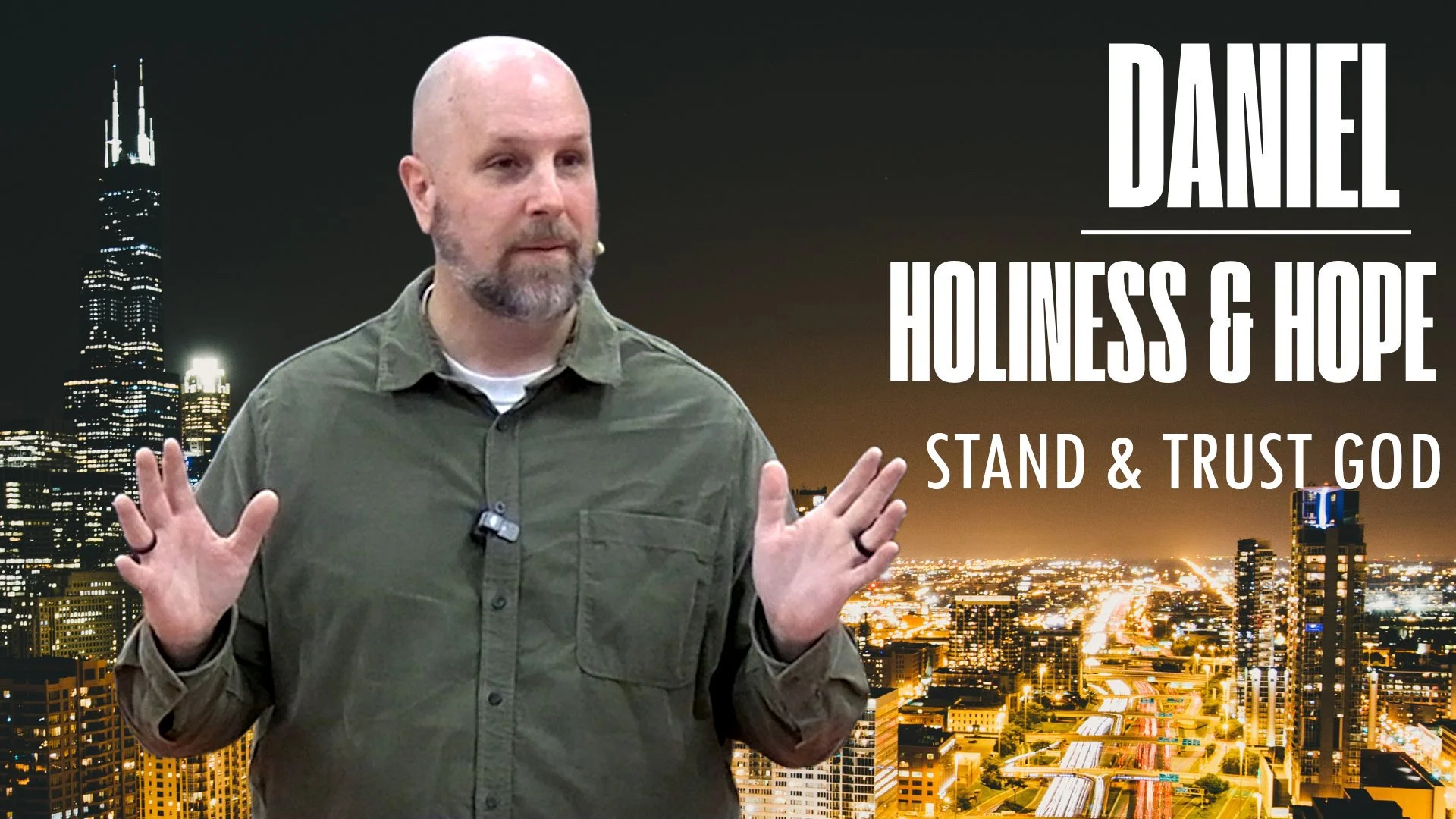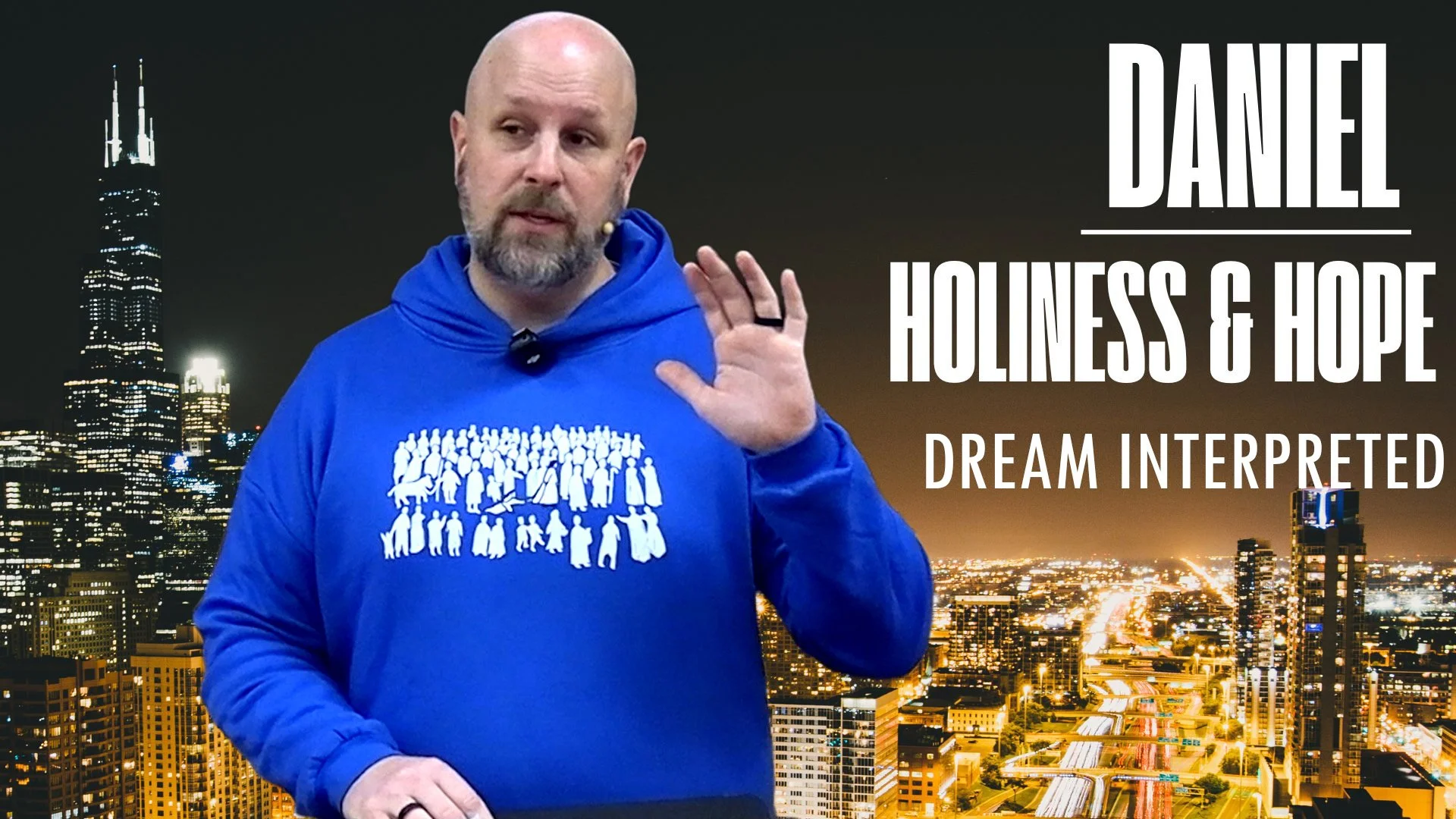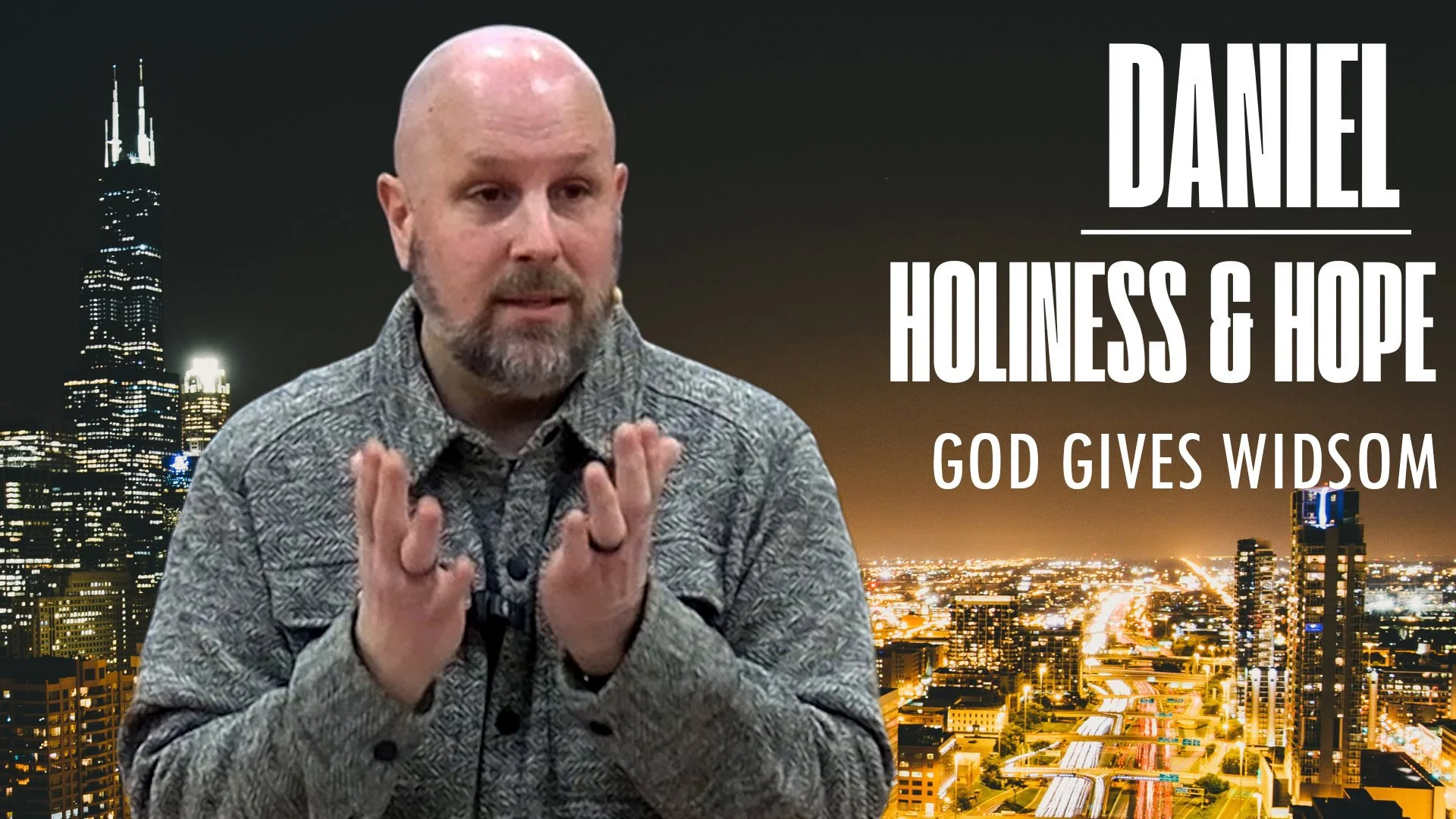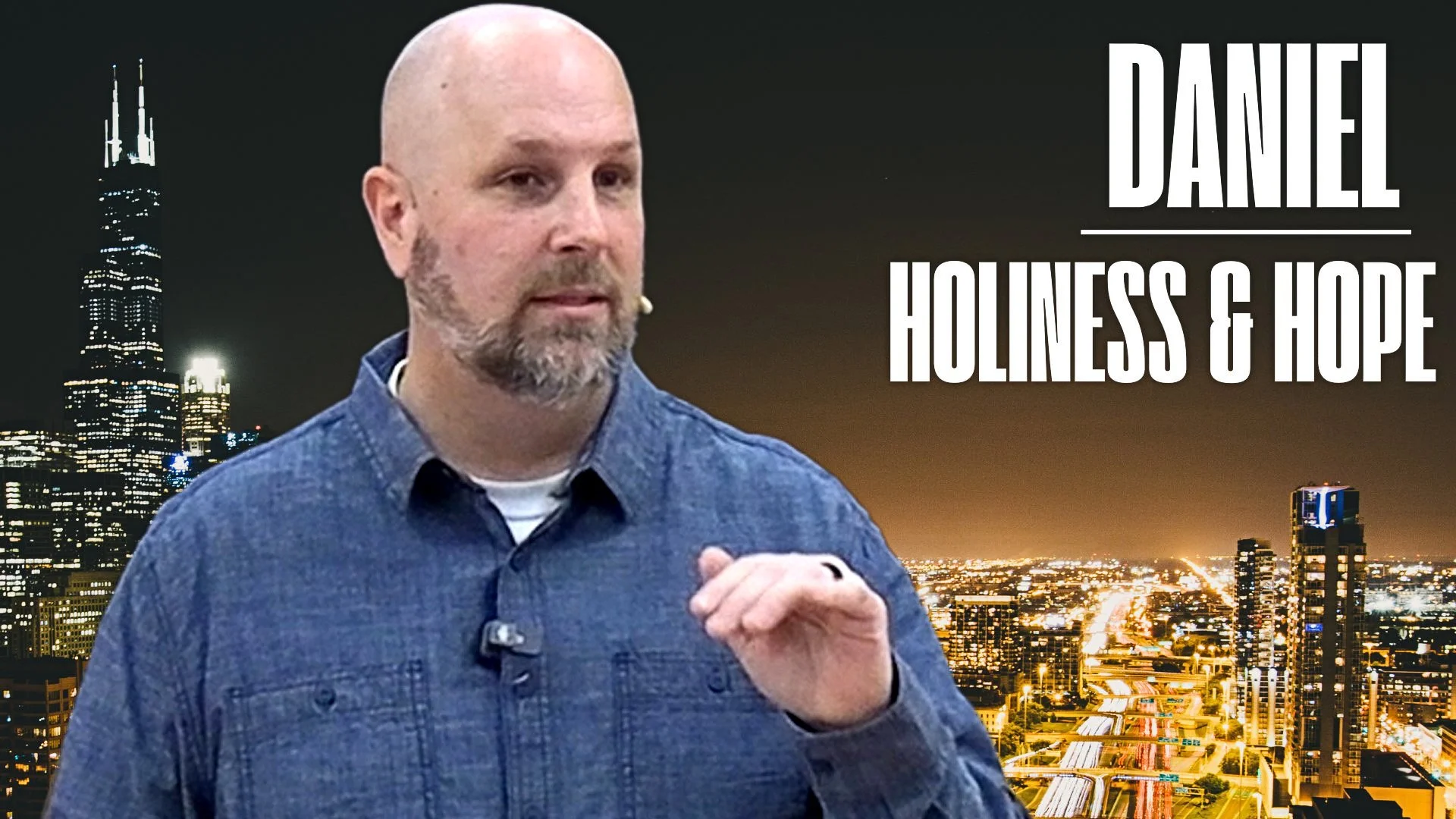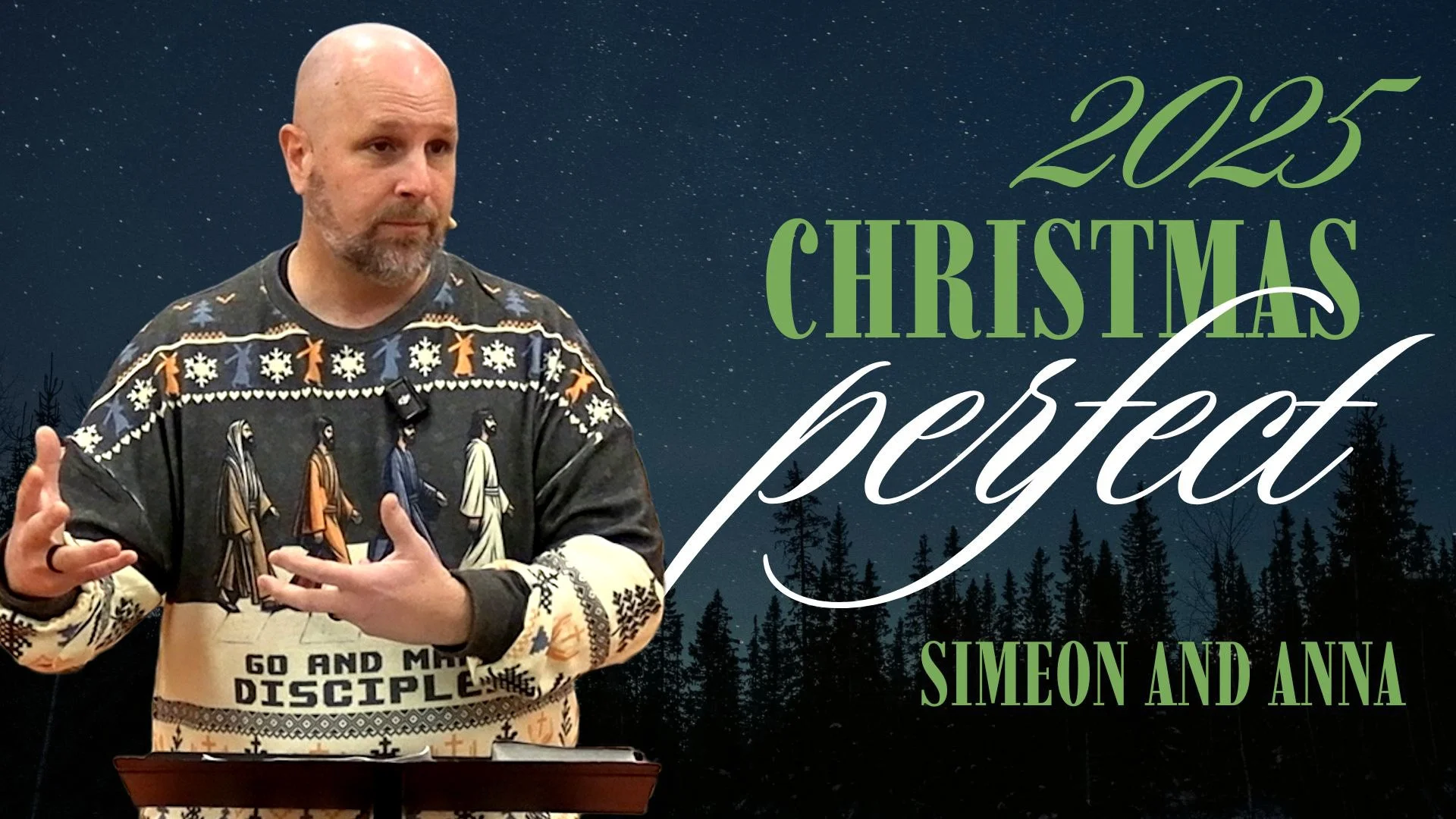Study Guides
Daniel 5 - Pride and Justice
Join Pastor Tim as we dive into Daniel chapter 5, where King Belshazzar’s arrogant party is suddenly interrupted by the literal writing on the wall. This sermon explores the dramatic fall of Babylon and the danger of letting power and prestige blind us to God’s sovereignty. As Daniel interprets the king's judgment, we are challenged to examine our own hearts and walk in humility before the God who will not be mocked
Daniel 4 - Knowing God’s Will
Understanding God’s will involves four levels. First is salvation through Jesus. Second is following biblical commands. Third is trusting God’s good character to redirect us if we fail. Finally, discernment comes through prayer, seeking wise counsel, and observing circumstances.
Daniel 4 - Pride, Power & Repentance
This study guide examines the themes, imagery, and theological reflections found in the analysis of Daniel Chapter 4. It focuses on the biblical narrative of King Nebuchadnezzar’s dream, Daniel’s interpretation, and the eventual restoration of the King through the acknowledgment of divine sovereignty.
Daniel 3- Stand and Trust God
Pastor Tim examines the third chapter of the biblical book of Daniel, focusing on the narrative of the fiery furnace. The text recounts how King Nebuchadnezzar demanded that all officials worship a massive golden statue, threatening execution for any who refused. Despite this decree, Shadrach, Meshach, and Abednego remained steadfast in their faith, resulting in a miraculous rescue by a divine presence within the flames. The speaker warns that the merging of religion and politics is historically dangerous and often driven by a human desire for power. He emphasizes that an acknowledgment of God differs significantly from true submission to His authority. Ultimately, the lesson encourages modern believers to maintain humility and conviction when facing cultural pressures, trusting God with the final results.
Daniel 2- Dream Interpreted
Pastor Tim continues the series in the Book of Daniel, exploring how to think biblically while engaging with the culture around us. We dive into Daniel Chapter 2, where King Nebuchadnezzar is furious over a disturbing dream that none of his fortune tellers can explain. Facing execution alongside the other wise men, Daniel seeks God in prayer, and the "Revealer of Mysteries" provides the answer.
Daniel - God Gives Wisdom
Continuing the "Holiness and Hope" series, this message explores Daniel Chapter 2, where King Nebuchadnezzar is troubled by a dream that threatens the lives of every wise man in Babylon. When the king demands both the revelation of the dream and its interpretation under the threat of execution, Daniel responds with wisdom and tact, turning to his friends to plead for mercy from God through prayer. This sermon highlights that God is the revealer of deep and hidden things who gives wisdom generously to those who ask, encouraging believers to pray with expectant faith and look to Jesus as the ultimate wisdom of God.
Daniel - Holiness & Hope
This series explores the fundamental challenge of maintaining a spiritually distinct lifestyle while navigating a society that often rejects divine principles. It provides a strategic framework for cultivating personal integrity and moral purity in the present moment, despite the surrounding cultural friction. By focusing on the intersection of current conduct and future expectations, the text aims to ground believers in a sense of unshakable optimism. Ultimately, the work serves as a guide for those seeking to balance practical holiness with a confident outlook on what lies ahead.
Simeon & Anna: Christmas Perfect
This transcript features a sermon by Pastor Tim focusing on the period immediately following the birth of Jesus as recorded in Luke chapter two. The message emphasizes that God’s perfect plan continued through the early life of Christ, specifically highlighting how Mary and Joseph strictly followed the Law of Moses during his consecration. The speaker introduces the biblical figures Simeon and Anna, describing them as righteous and devout individuals who recognized Jesus as the long-awaited Messiah and consolation for the world. Listeners are encouraged to emulate these figures by seeking divine comfort and maintaining a deep connection to God through prayer and fasting. Ultimately, the source frames the life of Jesus as the perfect fulfillment of the law and a source of universal redemption for all nations.
The Magi: Christmas Perfect
Pastor Tim discusses the story of the Magi as part of a sermon series on God’s perfect plan during the Christmas season. He clarifies common misconceptions by noting that the wise men arrived well after the birth of Jesus and that their exact number is unknown. The text contrasts the intellectual worship of the Magi with the paranoia of King Herod, who viewed the new King as a threat to his personal power. Through the symbolic gifts of gold, frankincense, and myrrh, the sermon illustrates Jesus’ identity as King, Priest, and Sacrifice. Ultimately, the message encourages listeners to surrender their own desire for control and trust in the eternal authority of Christ.

